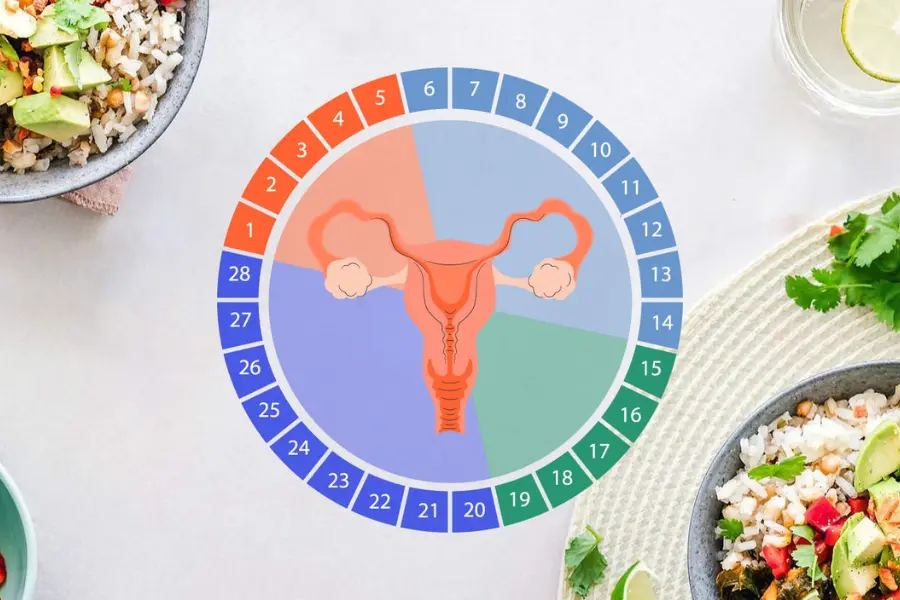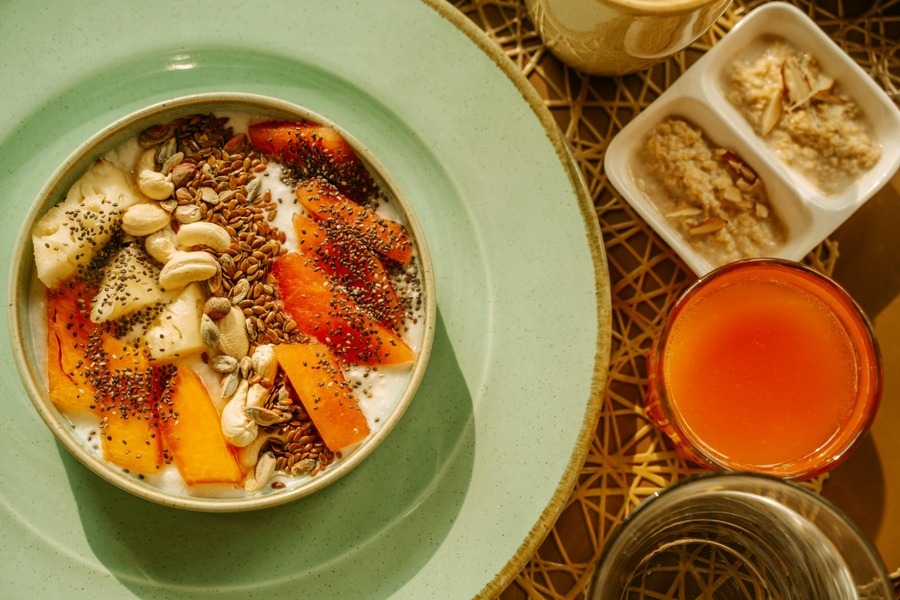Health-Promoting Superfoods
Your diet is one of the best ways you can care for your body, and achieve wellness for life. Health-promoting foods can also prevent you from developing chronic health conditions (like heart disease, Type 2 diabetes, and some cancers).
With all of the fads surrounding diets (high-fat or low-carb keto, and 100% plant-based vegan), it can be difficult to pinpoint what is truly health-promoting. This can be further complicated by nutrition, and the science that is ever-changing. Nutrition science can also be challenging when we hear conflicting information about the same topic from a variety of sources; however, most professionals can agree on certain foods that are health-promoting, almost without exception. Power foods can also be considered highly nutritious, versatile, and definite impacts to overall health and well-being.
Let’s explore some of the superfood categories that may be the most health-promoting, and how they may help your health from the inside-out.
The Power of Fiber: More than Just Digestion
Fiber is probably the first thing that comes to your mind if somebody speaks about digestion, and surely it is involved. However, fiber is not just a simple cleaner, but it is the one that has the biggest impact in the areas of the heart, diabetes, and weight loss.
Fiber is one of the carbohydrates that are indigestible by human bodies. There are two sources of fiber:
- Soluble fiber, when mixed with water in the intestine forms a jelly-like product and helps in reducing cholesterol and sugar in the blood.
- Insoluble fiber, that increases the volume of the stool and, therefore, regularizes the intestinal transit.
Most adults should consume around 20-30 g of fiber daily, but in reality, the majority of people take less than that. On the bright side, fiber is present in almost all commonly consumed foods. It is very easy to fulfill the daily requirement if you regularly eat fruits, vegetables, legumes, and whole grains.
Nutrition-wise these are some of the best choices you can make:
1 medium pear: 5.5 grams of fiber
- 1 cup of cooked pinto beans: 15.4 grams
- 1 baked potato (with skin): 4 grams
- 1 cup shredded wheat cereal: 6 grams
- 1 cup cooked quinoa: 5 grams
Eating fiber-rich foods on a daily basis not only makes the digestive system work smoothly, but it also offers the big advantage of being heart-friendly and giving the feeling of satiety, thus reducing the risk of overconsumption of calories.
Antioxidants: Nature's Warding System
Antioxidants are nutrients of great importance that not only ward off the oxidative stress but also the cell death caused by the free radicals of unstable molecules that have been associated with the human aging process and numerous chronic diseases. These compounds are able to do this by supporting your body’s fight against the inflammation, enhancing the immunity, and thus, also leading to the maintenance of the skin and brain functions.
Antioxidant supplements may be in vogue but studies have shown that incorporating the whole food sources into the diet is far more potent. This owes to the fact that the natural foods provide a blend of vitamins, minerals, and phytonutrients munitions wielding together for the maximum health benefits.
A few of the foods richest in antioxidants are:
- Berries: mainly blueberries, strawberries, and raspberries
- Bell peppers: holistically red and yellow types
- Broccoli: loaded with vitamin C and sulforaphane
- Leafy greens: turnip greens, kale, and collard greens
- Peanuts and nuts: very good sources of vitamin E
- Tomatoes: full of lycopene, which is good for heart and skin health
A plate full of colors is the most likely and the best sign that you are consuming a range of antioxidants. The more the colors are lively, the more diverse the protective nutrients you are taking in.
Smart Protein Choices for a Healthier You
Protein plays an essential role in tissue creation and repair, muscle mass conservation, and the support of a healthy metabolism. Furthermore, protein-rich diets can be beneficial in weight control as they keep one satiated for a longer period of time.
Nevertheless, the protein source is significant. Red meats and full-fat dairy are protein sources, but if these are consumed in large amounts, they will lead to an increase in cholesterol levels. To prevent this, choose lean and plant-based proteins, which provide the heart with all the essential amino acids together with fiber, antioxidants, and healthy fats.
Here are some protein options that you are wise to include:
- Lentils and beans: Black, kidney, or chickpeas
- Soy-based foods: Edamame, tofu, and tempeh
- Nuts and seeds: Almonds, walnuts, sunflower seeds, pumpkin seeds
- Whole grains: Quinoa, which is a complete plant protein
- Lean meats and fish: chicken, turkey, and fatty fish like salmon
By mixing animal and plant protein sources you not only keep your energy up but also support your cardiovascular and metabolic health over the long haul.
Foods That Strengthen Your Immune System
A strong immune system is your body’s defense against illness, and nutrition plays a critical role in keeping it resilient. Deficiencies in certain vitamins and minerals can weaken immunity and increase susceptibility to infections.
Key immune-supporting nutrients include:
- Vitamins A, C, D, and E
- B vitamins (B2, B6, B12, and folate)
- Minerals such as iron, zinc, and selenium
If your diet includes a lot of processed food or limited fresh produce, you may fall short on these nutrients. Vegetarians and vegans, in particular, should pay close attention to vitamin B12 intake, which is mostly found in animal-based or fortified foods.
Incorporate these foods for a stronger immune response:
- Vitamin A: Carrots, sweet potatoes
- Vitamin B2: Tofu, lean meats like skirt steak
- Vitamin B6: Chickpeas, salmon
- Vitamin B12: Dairy products, fortified cereals
- Folate (B9): Avocados, spinach
- Vitamin C: Brussels sprouts, tomato juice
- Vitamin D: Eggs, mushrooms
- Vitamin E: Broccoli, natural peanut butter
- Iron: Beans, poultry
- Selenium: Seafood, enriched grains
- Zinc: Nuts, beef
By consistently incorporating these nutrient-rich foods, you help your immune system perform at its best—keeping you energized, protected, and thriving.
Final Thoughts
Eating right is not a big deal. Simply, by giving your top priority to health power foods which are a good source of fiber, fruits and vegetables full of antioxidants, lean proteins, and nutrients that strengthen the immune system, you are really making a very valuable investment in your health and energy for a long time to come. Every clean meal that you opt for is a step away from a stronger body, sharper mind, and more balanced life.



